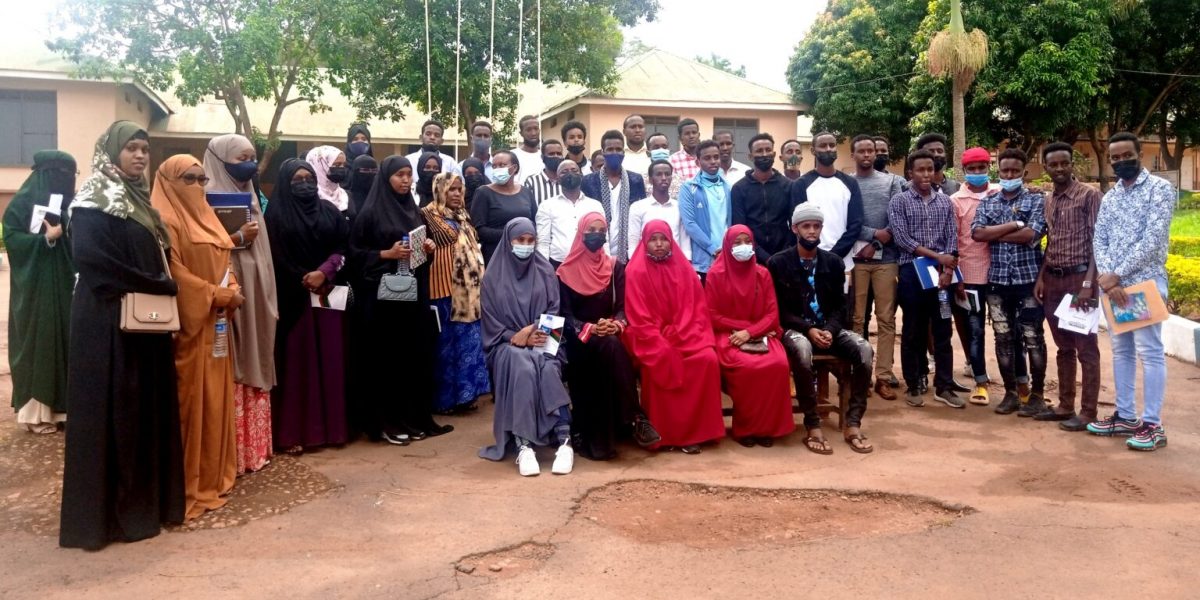By Betty Kyakuwa
A group of over 70 Somali refugees have today 25th October, 2021 started a three month-long training in entrepreneurship skills. The training, which took place at Lubiri High School is being conducted by Dr. Anthony Tibaingana, a Lecturer in the College of Business and Management Sciences (CoBAMS).
Dr. Tibaingana is a beneficiary of the Makerere University Research and Innovations Fund (Mak-RIF). His research project is titled; Integrating refugees into Economic Activities through Mobile Entrepreneurship Skilling.
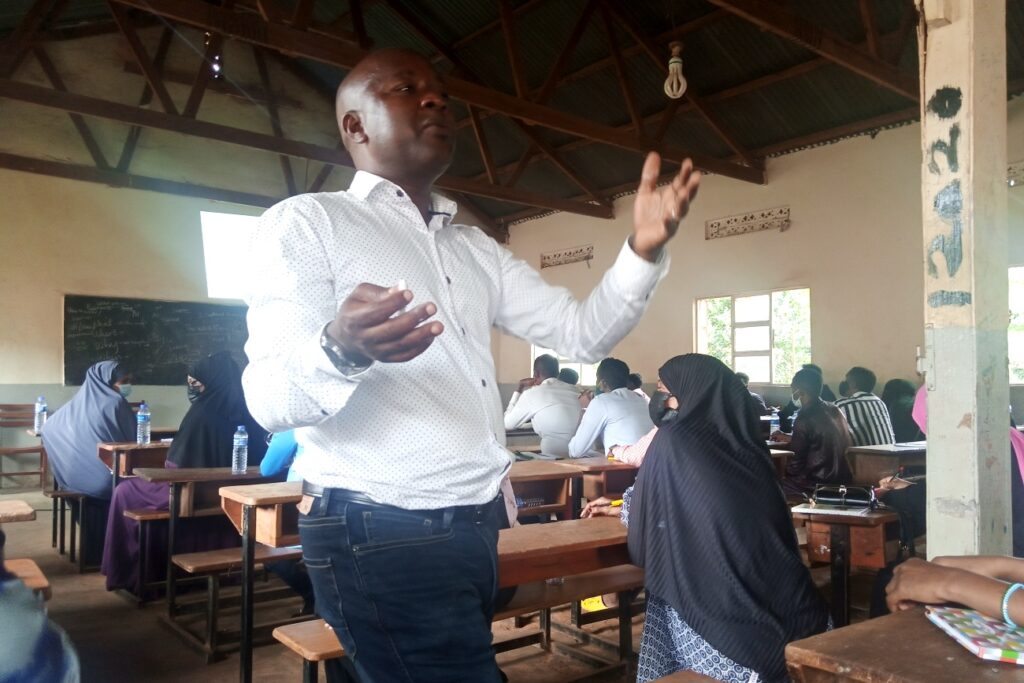
Dr. Tibaingana walks through his class during the first day of training on 25th October 20.
Speaking during the opening, Ms. Halima Muhammed, a refugee working with Norwegian Refugee Commission encouraged the participants to pursue their dreams of becoming successful at the businesses that they wish to start. She reminded them that they are the ones responsible for building Somalia and the skills they will get throughout the duration of the training will go a long way in helping them develop their communities. She hastened to add that customer care was key in running any business.
Dr. Tibaingana said the aim of the project is to skill refugees and aid their integration into the economy. It is hoped that this training will enable the refugees to contribute to the economic development of Uganda through paying taxes, increasing household incomes and creating employment for others.
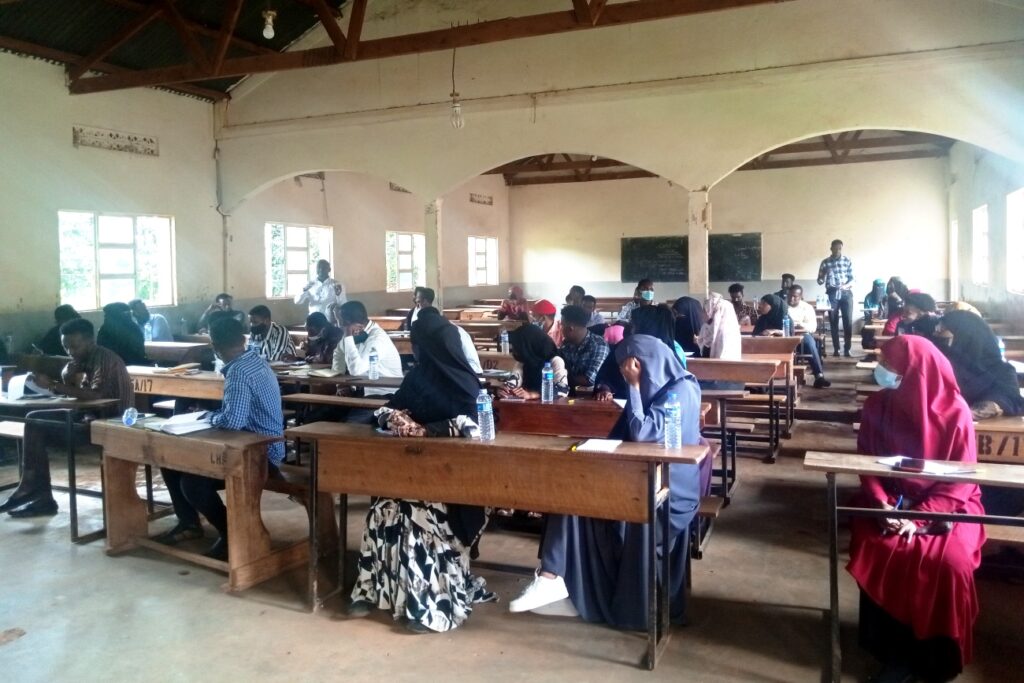
The participants listen keenly to Dr. Tibaingana.
The participants learnt that entrepreneurship in simple terms refers to seeing an opportunity and turning it into a business or enterprise. It is envisaged that at the end of the training, the refugees will know the different sources of business ideas, discuss different types of business, start a business, know where to get customers, run a successful business as well as know where to get capital investment.
The participants learnt that for one to start a business, they need to identify a need. The training, was participatory in nature which allowed various people to share their ideas. The trainees shared their business ideas such as, having a sporting line, sale of Camel milk and Events Management among others.
The participants learnt that starting a business is taking a risk and therefore one needs to be ready as the bigger the risk, the bigger the return on investment and vice versa. “Do not promise your client what you can not provide because no customer likes being told a lie,” Dr. Tibaingana cautioned, adding that “the location of your business should be strategic.”
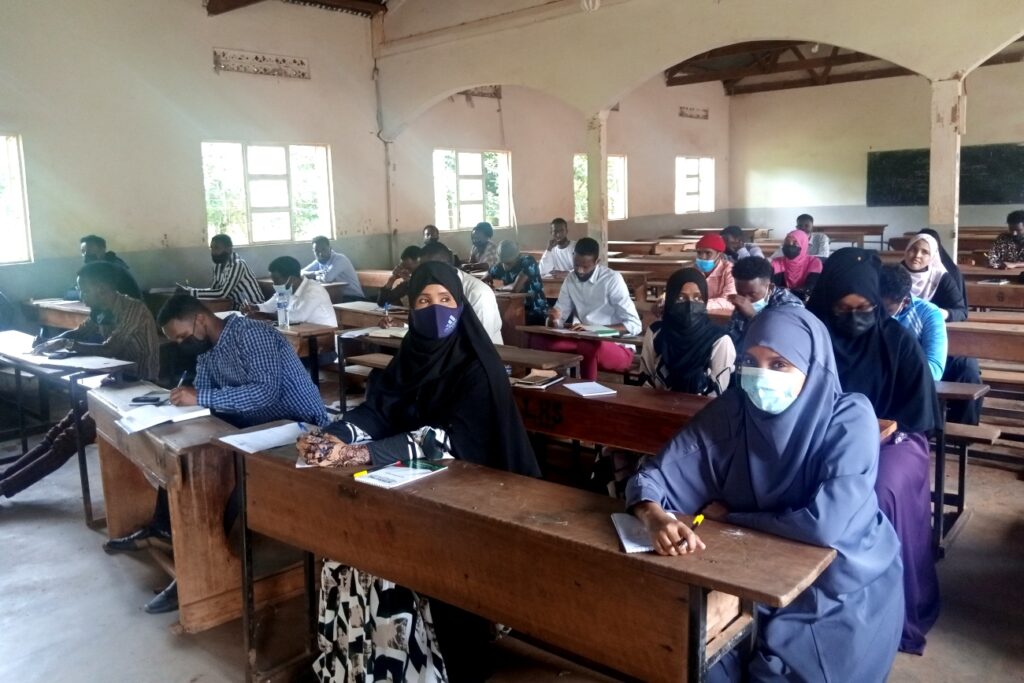
The trainees shared their business ideas such as, having a sporting line, sale of Camel milk and Events Management among others.
The trainees also learnt that there are three types of business ownership and therefore they need not do it alone. They can own businesses as individuals, partners and co-operatives. If a business is owned by partners or co-operatives, this allows for huge capital investments as well as spreads out the risk of the investment. The researcher also shared with them a checklist of the must-haves before starting a business, these included money/resources, Market and manpower among other things. One of the participants, Ali Muhammed hopes that he can start a successful business after this training.
This research is part of Makerere University’s core business of teaching, research and outreach. “This time we are taking the university to the vulnerable communities. These skills will enable them to make a life for themselves,” Dr. Tibaingana said. The researchers have worked with some community organizations such as Somalia Youth Action Organization (SOYA) in conducting the training. More trainings will be carried out in Kawempe, Makindye, Lungujja, Nakawa and Mengo.
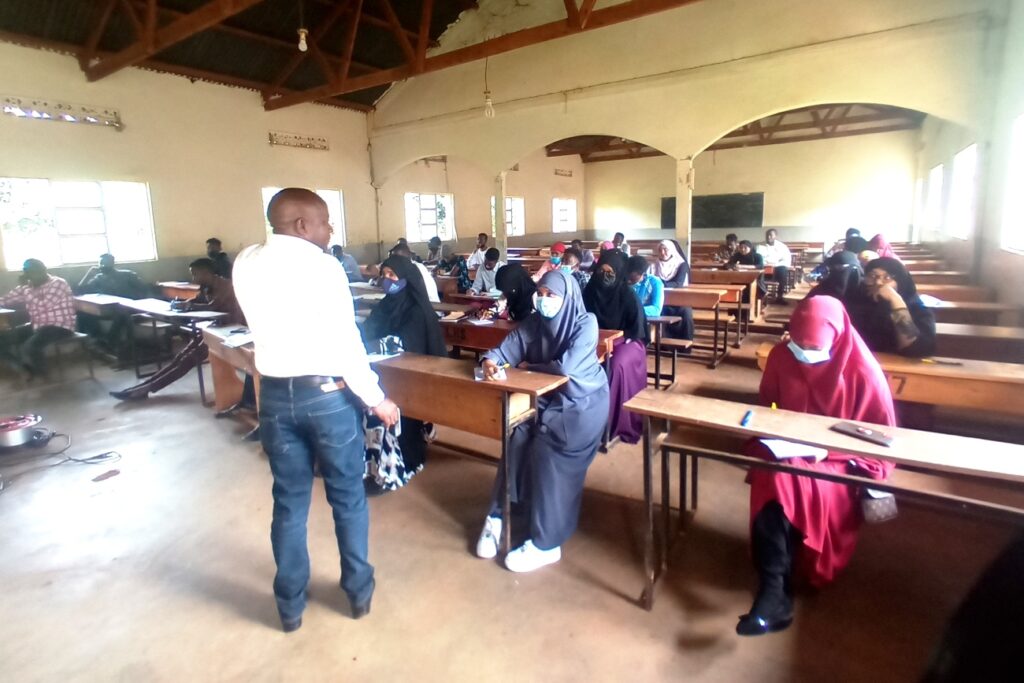
Dr. Tibaingana noted that the project is one way of taking the university to the vulnerable communities.
Uganda is one of the largest refugee-hosting nations in the world, with over 1,400,000 refugees. The vast influx of refugees is due to several factors in Uganda’s neighboring countries, especially war and violence in South Sudan, Somalia and the Democratic Republic of Congo (DRC), as well as associated economic crisis and political instability in the region.
Uganda has relatively ‘friendly’ policies that provide rights to the refugees, such as rights to education, work, private property, healthcare and other basic social services. To this end, Makerere University, through her outreach programs is supporting government programs to offer the Somali refugee community an opportunity to be entrepreneurs, both here in Uganda and back home in Somalia.
The Research Team
- Dr. Anthony Tibaingana; Principal Investigator, Lecturer Department of Marketing and Management
- Dr. Faisal Buyinza; Senior Lecturer, Department of Economic Theory and Analysis
- Ms. Hanifa Nantale, Assistant Lecturer and PhD Student, CoBAMS
- Ms. Betty Tuhaise, Assistant Lecturer and PhD Student, CoBAMS
- Ms. Cathy Twongyeirwe; Business woman.
Betty Kyakuwa is the Principal Communication Officer, College of Business and Management Studies (CoBAMS)
